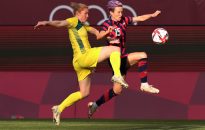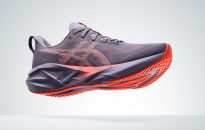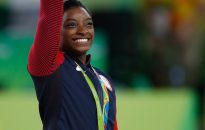After backlash, the university quickly walked back Blank’s implied threat to abandon college sports if players were ever paid. Now, UW asserts that these transactions are so crucial to its future—and that of its state—that the process of securing these deals must remain shrouded in secrecy. The transparency debate over name, image and likeness has […]


After backlash, the university quickly walked back Blank’s implied threat to abandon college sports if players were ever paid. Now, UW asserts that these transactions are so crucial to its future—and that of its state—that the process of securing these deals must remain shrouded in secrecy.
The transparency debate over name, image and likeness has raged since even before the NCAA adopted its interim NIL policy in July 2021.
As part of its denial, UW cited a 2006 state appellate court ruling in a public records lawsuit, State of Wisconsin v. Beaver Dam Area Development Corporation, in which the Wisconsin attorney general had sued a nonprofit corporation that was doing business with a local municipality, contending that it should be subject to the state’s open records and open meetings laws. In overturning a lower court’s ruling for the state, the appellate court noted that the judiciary had long recognized the need to balance the harms and benefits of public disclosure.
UW’s particular argument for the far-reaching consequences of disclosure is notable. Historically, universities and their leaders have been pressured to champion NCAA amateurism while downplaying the financial underpinnings of the college athlete-school relationship.
As part of its denial, UW also cited student privacy laws, a common response used by many public universities in refusing to disclose athlete NIL agreements. A number of state NIL laws now specifically exempt endorsement agreements between college athletes from being subject to open records laws. Wisconsin, however, is in the minority of states that has yet to adopt an NIL law, with a state assembly bill proposed last February failing to pass.
“My support and the support of the leadership at our university, given our core mission here is an educational mission, would be less,” she said in her testimony. “It’s not clear … that we would continue to run an athletic program. We’re not interested in professional sports. We’re interested in student athletes.”
Bill Lueders, president of the Wisconsin Freedom of Information Council, criticized the university’s reasoning for denying Sportico’s request, calling it “absurd.” He pointed out that there is no factual evidence to support the claim that disclosing redacted NIL agreements would put UW at a competitive disadvantage, especially if sensitive details such as athletes’ names or exact financial terms were withheld.
In 2008, the Wisconsin Supreme Court reversed the appellate ruling in the case, giving what was widely considered to be a victory for public access.
Although Sportico didn’t specifically ask for Lucas’ or any future revenue-sharing agreements, Wisconsin nonetheless contends “the information sought is relevant to current and future negotiations with student athletes and recruits.” The school argues that disclosure would create an “especially stark” disadvantage in its efforts to compete with private institutions and schools subject to “less stringent open records requirements.” (The Big Ten includes two private schools, Northwestern and USC, while Penn State, as a “state-related institution,” is exempt from Pennsylvania’s Right-to-Know law.)
The University of Wisconsin is refusing to disclose even redacted copies of its current athletes’ NIL agreements, contending that doing so would “jeopardize the competitive position of the university” and is ultimately “detrimental to the public interest.”
In 2018, UW’s then-chancellor Rebecca Blank testified on behalf of the defendants in Alston v. NCAA, the antitrust litigation challenging the NCAA’s grant-in-aid cap. When asked by the plaintiff’s lawyer, Steve Berman, about whether college athletes getting paid would affect consumer demand, Blank said it would—and then took it a step further.
There is one such agreement that may be of particular sensitivity: a two-year, revenue-sharing contract the school reportedly entered into with former Badger defensive back Xavier Lucas, before denying his request to enter the transfer portal. In a post on X on Friday, Darren Heitner, Lucas’ attorney, described the agreement as a “[Memorandum of understanding] conditioned on approval of the House [v. NCAA] settlement.” Despite the university’s refusal to grant his request, Lucas is still transferring to the University of Miami for the fall 2025 semester, a move that has been tacitly approved by the NCAA.
“In the ultra-competitive landscape of Division I intercollegiate athletics, your request would force disclosure of information that allows the university to be competitive in the Big Ten Conference and at the national level,” UW’s public records custodian wrote in an email this week. “The public has an interest in a strong and self-sustaining university system. The success of teams within the Division of Intercollegiate Athletics ensures the viability of all athletic programs, supports both the reputation and financial standing of the university as a whole, and is an economic driver for the city of Madison and state of Wisconsin.”
UW asserted this position in a lengthy denial to a recent public records request by Sportico, which sought written agreements between Badger athletes and the school since the beginning of last year.














